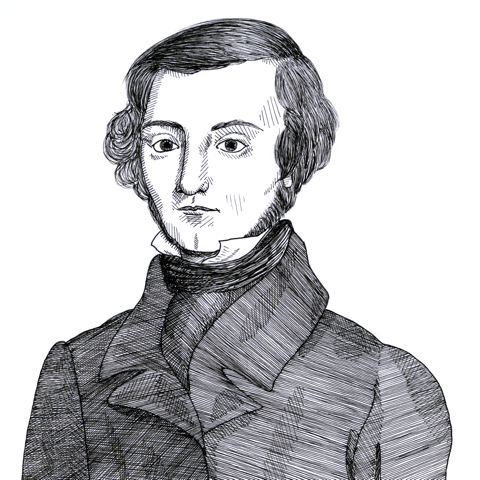
Tocqueville warns how administrative despotism might come to a democracy like America (1840)
Found in: Democracy in America. English Edition. Vol. 2.
Alexis de Tocqueville (1805-1859) predicted that above the “crowd of similar and equal men” in a democracy will emerge “an immense and tutelary power” which will create a new kind of despotism:
The State
After having thus taken each individual one by one into its powerful hands, and having molded him as it pleases, the sovereign power extends its arms over the entire society; it covers the surface of society with a network of small, complicated, minute, and uniform rules, which the most original minds and the most vigorous souls cannot break through to go beyond the crowd; it does not break wills, but it softens them, bends them and directs them; it rarely forces action, but it constantly opposes your acting; it does not destroy, it prevents birth; it does not tyrannize, it hinders, it represses, it enervates, it extinguishes, it stupifies, and finally it reduces each nation to being nothing more than a flock of timid and industrious animals, of which the government is the shepherd.